Day of the African Child 2025: A Call to Put Children at the Centre of Planning and Budgeting
By: Lerato Brown, Communications and Marketing Manager, World Vision Lesotho
Theme: “Planning and Budgeting for Children’s Rights: Progress Since 2010”
Each year on June 16th, the African continent pauses to reflect on the rights and well-being of its youngest citizens as we commemorate the Day of the African Child. The 2025 theme, “Planning and Budgeting for Children’s Rights: Progress Since 2010,” offers a timely opportunity to assess how far we’ve come in placing children at the heart of public investment—and where we must go next. This year’s commemoration is not just a moment of reflection, but a powerful call to action.
Celebrating Progress, Acknowledging Gaps
Since 2010, African Union Member States; including Lesotho, have made notable strides in aligning national development plans with children’s rights. We’ve seen the adoption of key policies such as the Child Protection and Welfare Amendment Bill (2023), which criminalizes child marriage; the Counter Domestic Violence Act (2022); and the Initiation Schools Bill (2022). Social protection programmes have expanded, and budgets have been allocated to improve education, health, nutrition, and child protection services.
We celebrate the efforts of government ministries, civil society organizations, and development partners who have championed children's rights and worked to integrate child-focused planning into national frameworks. Yet, despite these gains, the lived realities of many children across Lesotho tell a different story; one where access to basic services remains uneven, and children's voices are still missing from decision-making spaces.
Why Child-Centred Planning and Budgeting Matters
Children make up 38% of Lesotho’s population. Their needs are not only urgent; they are strategic. Therefore, investing in children is not an act of charity; it is in-fact one of the most effective investments in a country’s long-term development and stability. Child-sensitive planning and budgeting is not merely about allocating funds to education or health. It is about shifting governance models to treat children as stakeholders in shaping decisions that affect their lives. It means:
Prioritizing equitable investments in education, health, nutrition, protection, and WASH services.
Tracking how budgets impact children across different income levels, geographic areas, and abilities.
Creating spaces where children can express their needs and aspirations; safely and meaningfully.
The Power of Participation: Listening to Children
This year, children themselves are leading the charge. Across Lesotho, young voices are rising with clarity and courage calling for inclusion in planning and budgeting: Sharing their messages as part of sharing their voices on the celebration of the day of the African Child 2025.
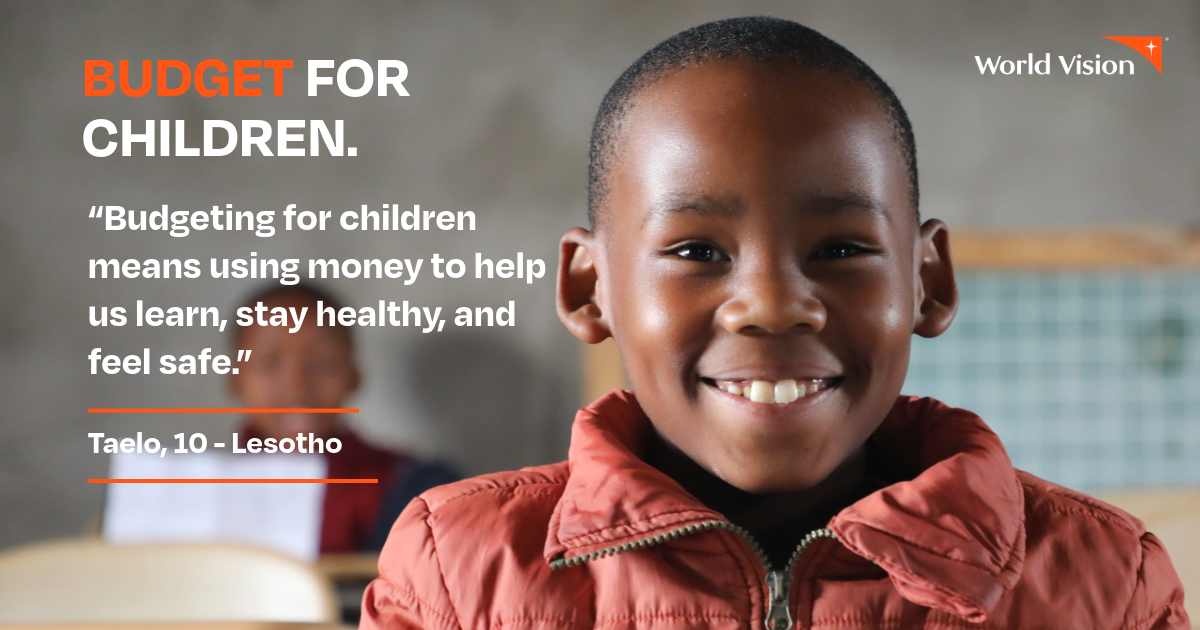
"Planning and budgeting for children means making sure money is used to help children learn, stay healthy, feel safe and be treated fairly - Taelo,10
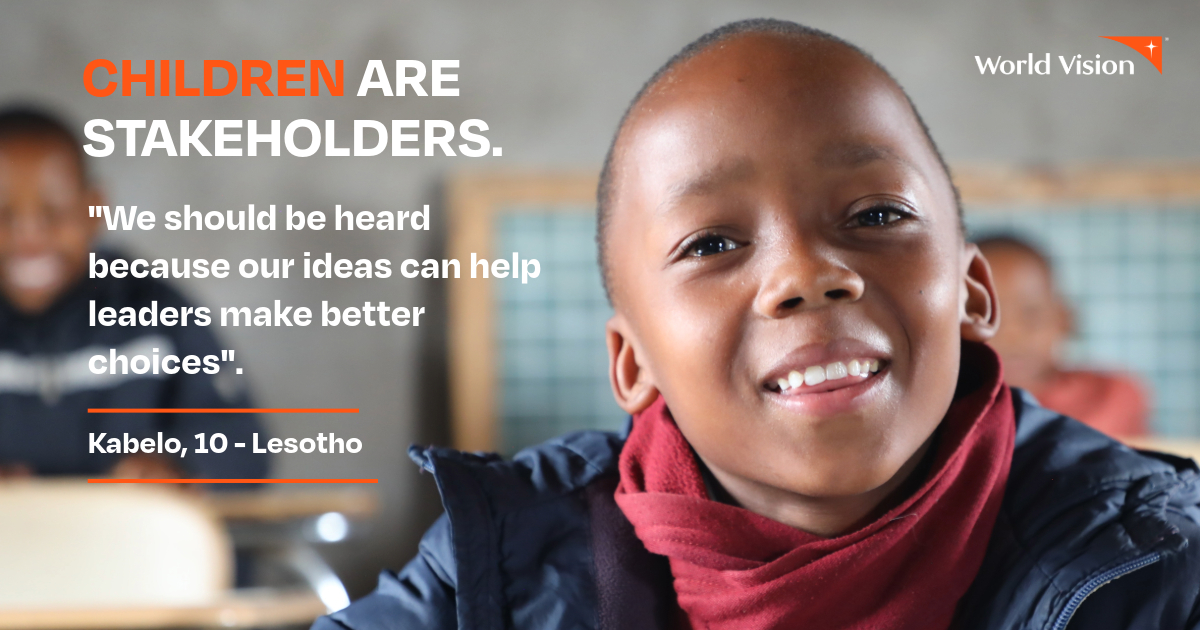
“Children are stakeholders; and they have the right to be heard. And their ideas can help leaders make better choices for school, health and safety. If leaders talk to us and listen carefully, they will make better plans that actually help us.” - Kabelo, 12
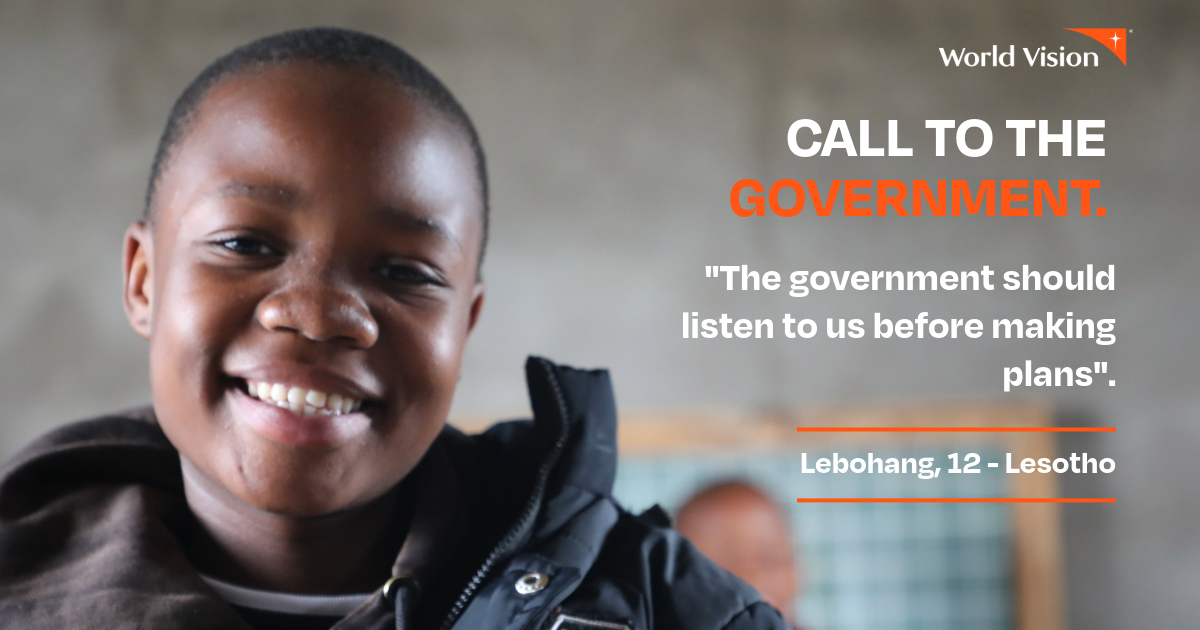
"The government should listen to children's voices before making good plans for them, making good plans to help children to go to school, stay healthy, clean water and to feel safe. the Government should make laws to protect children, keep children safe away from abuse, child labour and early marriages. “ — Lebohang, 12
These are not just heart-warming quotes from children; they are policy insights. When children are meaningfully involved, programmes become more responsive, effective, and just. Their participation helps reveal blind spots and prevent gaps in implementation.
World Vision: Amplifying Children’s Voices
World Vision International Lesotho is proud to be a leader in advancing child participation as a pillar of good governance and social accountability. We believe that children are not passive beneficiaries; they are active agents of change. That’s why we work to amplify their voices at every level: community, national, continental, and global.
We don’t just advocate for children; we advocate with them.
National Leadership Platforms: Where Children Speak and Leaders Listen
National Children’s Parliament

In partnership with the Ministry of Gender, Youth, and Social Development and UNICEF Lesotho, World Vision co-facilitates this annual national platform where children debate pressing policy issues and offer concrete recommendations to lawmakers. These are not symbolic events, but we have witnessed children’s insights influence national dialogues and shape policy direction.
Child Advocacy Forums
At community and district levels, World Vision supports child-led advocacy forums where children; especially from marginalized backgrounds are trained to identify challenges, propose solutions, and engage authorities. These forums are embedding child-centered thinking into governance, from the ground up.
Continental Influence: Taking Local Voices to African Platforms
World Vision ensures that children from Lesotho are represented on continental advocacy platforms:
At the recent 43rd Ordinary Session of the African Union, children advocated for inclusive and compulsory education for all.
At the African Committee of Experts on the Rights and Welfare of the Child, child delegates shared ground-level realities that helped shape continental commitments on child protection issues calling for stronger action against child abuse and bringing an end to child sexual exploitation.
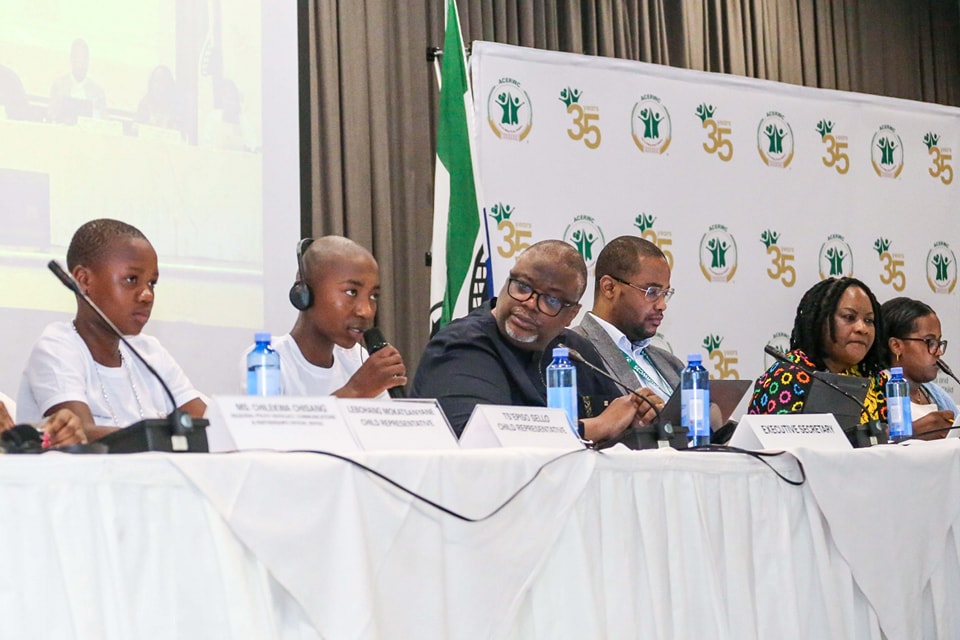
The 45th Ordinary Session of the African Committee of Experts on the Rights and Welfare of the Child (ACERWC)
I urge the committee, national governments, Civil Society Organizations (CSO's), Development partners, Families, Communities to fully address factors that expose my fellow children to child sexual exploitation and abuse as well as strengthen laws and policies to combat the vice. — Tsepiso, 15, Child Delegate to the African Committee of Experts
During the Continental Commemoration of the Day of the African Child, children stood side-by-side with peers from across Africa to spotlight shared challenges, from child marriage to access to education.
Global Days, Local Voices: Making Every Moment Count
World Vision doesn’t just bring children to events. We ensure they lead them. Through storytelling, media engagement, public speaking, and panel discussions, children shape the agenda and drive the message forward.
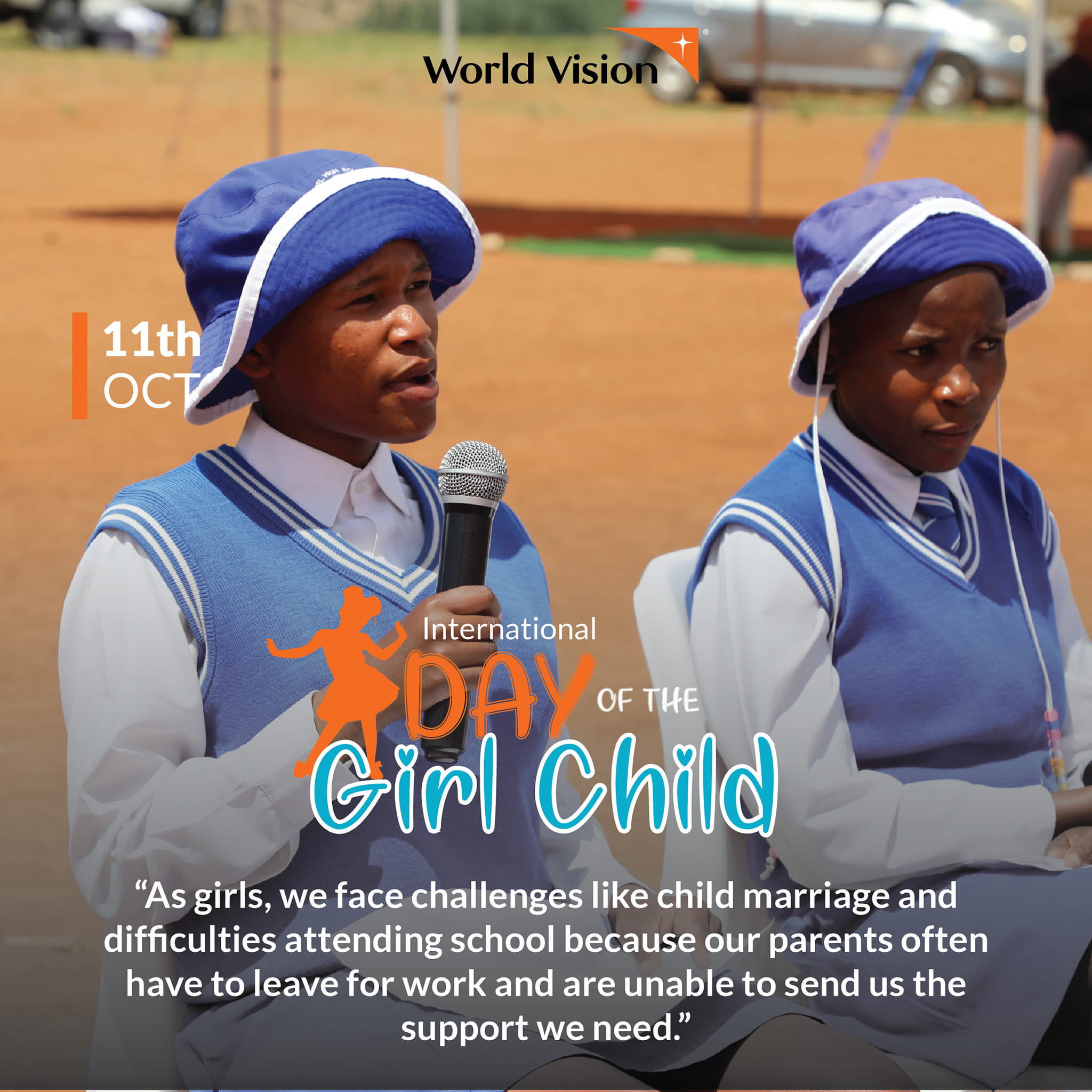
Key moments include:
16 Days of Activism Against Gender-Based Violence
Day of the African Child
World Children’s Day
International Day of the Girl Child
These aren’t one-day events. They are part of our year-round strategy to place children at the heart of justice, equality, and protection dialogues.
From Participation to Power
We believe in moving from tokenism to transformation. When children are taken seriously; not just heard but heeded, they do more than participate; they lead, co-create solutions, shape policies and hold adults accountable.
This is what true child-centered governance looks like. As we commemorate the Day of the African Child 2025, World Vision reaffirms its commitment to creating sustained, inclusive spaces where children’s voices echo beyond the podium into budgets, policies, and action plans. Because children don’t just have the right to be heard.
They have the power to lead.
A Call to Government: Put Children at the Centre
To build on the progress made, we call on the Government of Lesotho to:
Institutionalize child participation in planning and budgeting processes at national and local levels.
Strengthen budget transparency and accountability in how public funds impact children.
Ensure cross-sector coordination so that child-focused priorities are integrated across ministries.
Expand investments in vulnerable groups, including children with disabilities, children in rural areas, and those living in poverty.
The Future Is Now
Children are not just the future; they are the present. They are caregivers, students, citizens, and change agents. They have ideas, energy, and dreams. When we place them at the center of our plans and budgets, we aren’t just protecting their rights; we are laying the foundation for a stronger, more just nation.
Let the Day of the African Child 2025 be the year we move from consultation to co-creation. From good intentions to bold action. And from hearing children to being led by them.